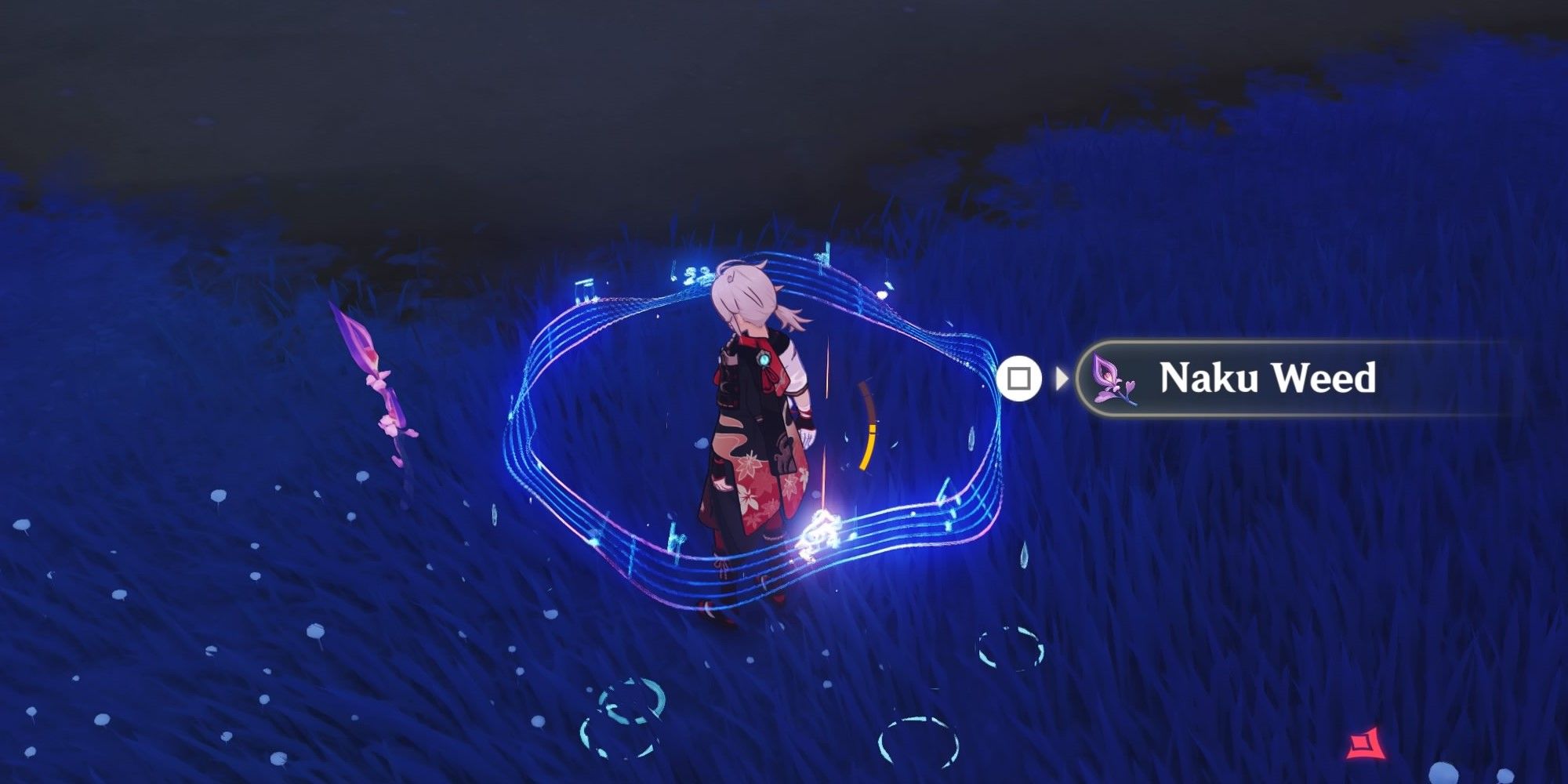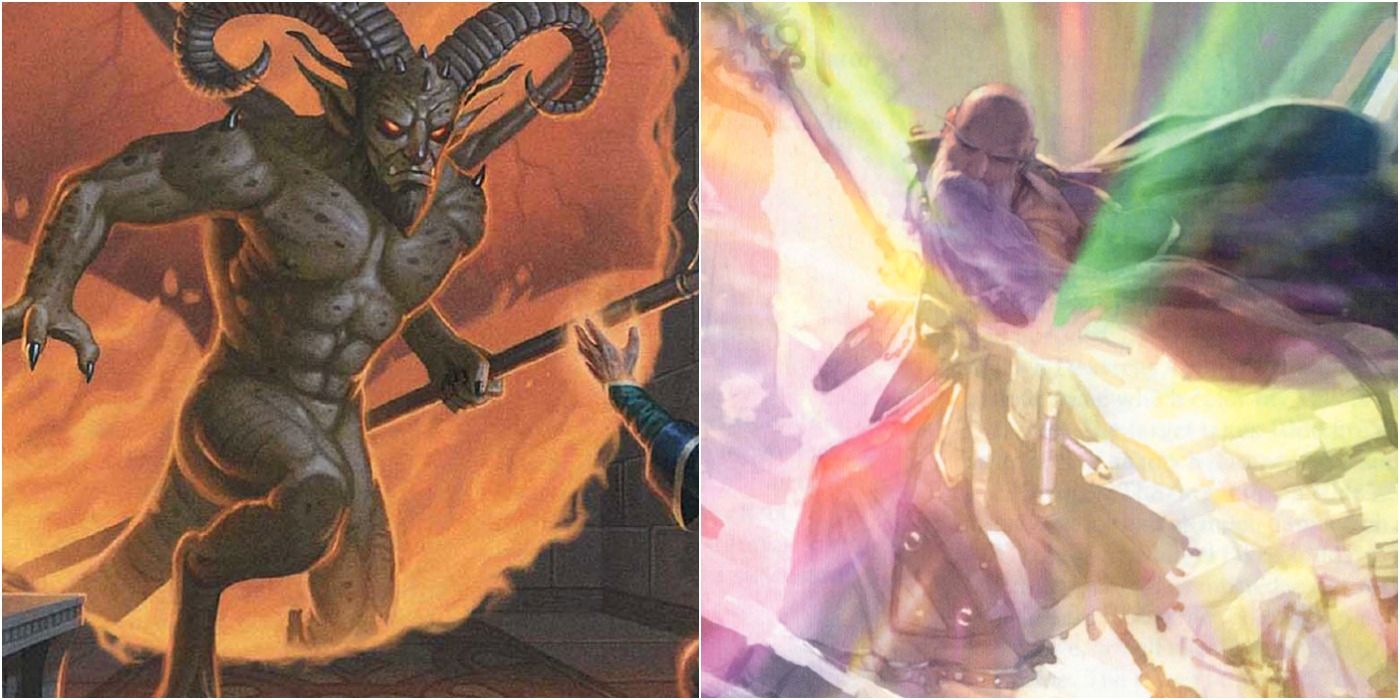
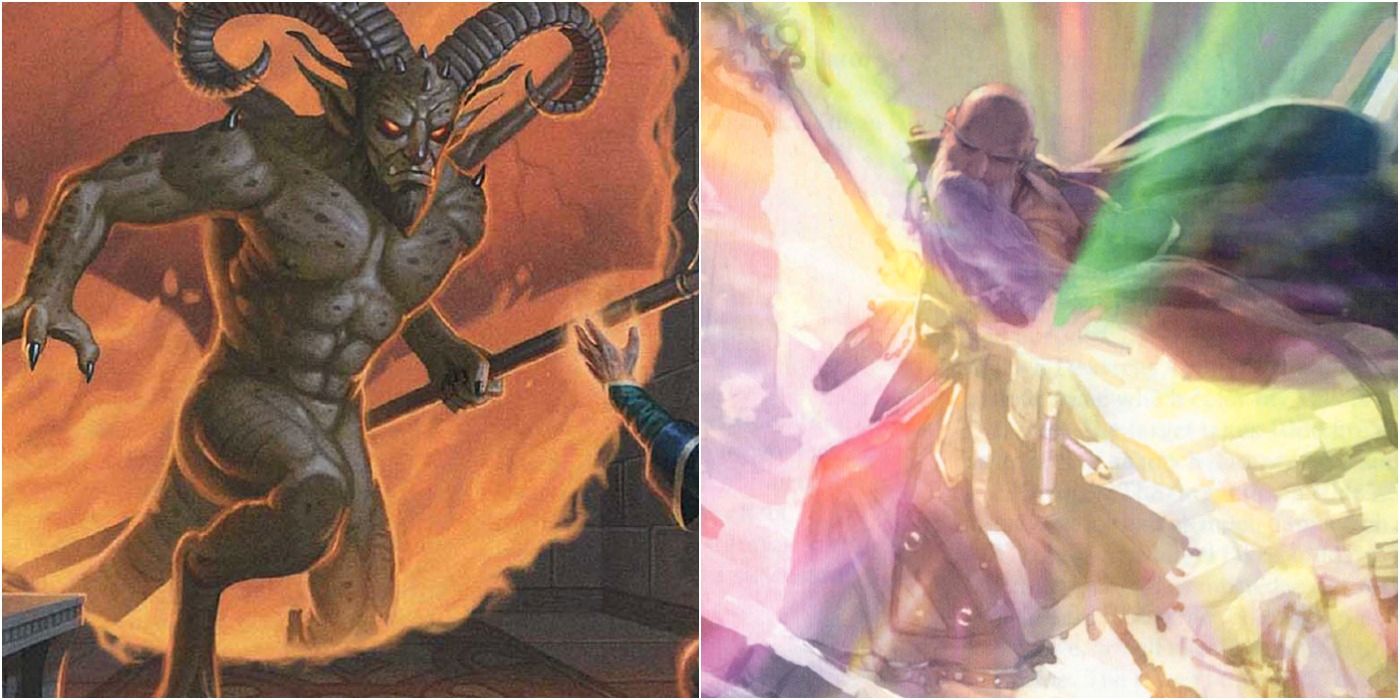
Wizards in Dungeons & Dragons transform into the obligatory spellcaster in any party. Frail to a fault, Wizards in Dungeons & Dragons compensate for their weak constitution with a wide array of Spells that can devastate the battlefield or support the entire party. At the right hands, the Wizard Class can wreak havoc at any battlefield. And a strategic-enough player can transform the simplest of Spells into grand displays.
RELATED: The Best Ways To Play Dungeons & Dragons Online
Anyone new to the Wizard Class may realize that they can specialize in a School of Magic. At its core, Schools give their Wizard students access to special traits that give unique access to their Spells. Newcomers and their Wizards should choose a School that can help them maximize their potential inside and outside the battlefield.
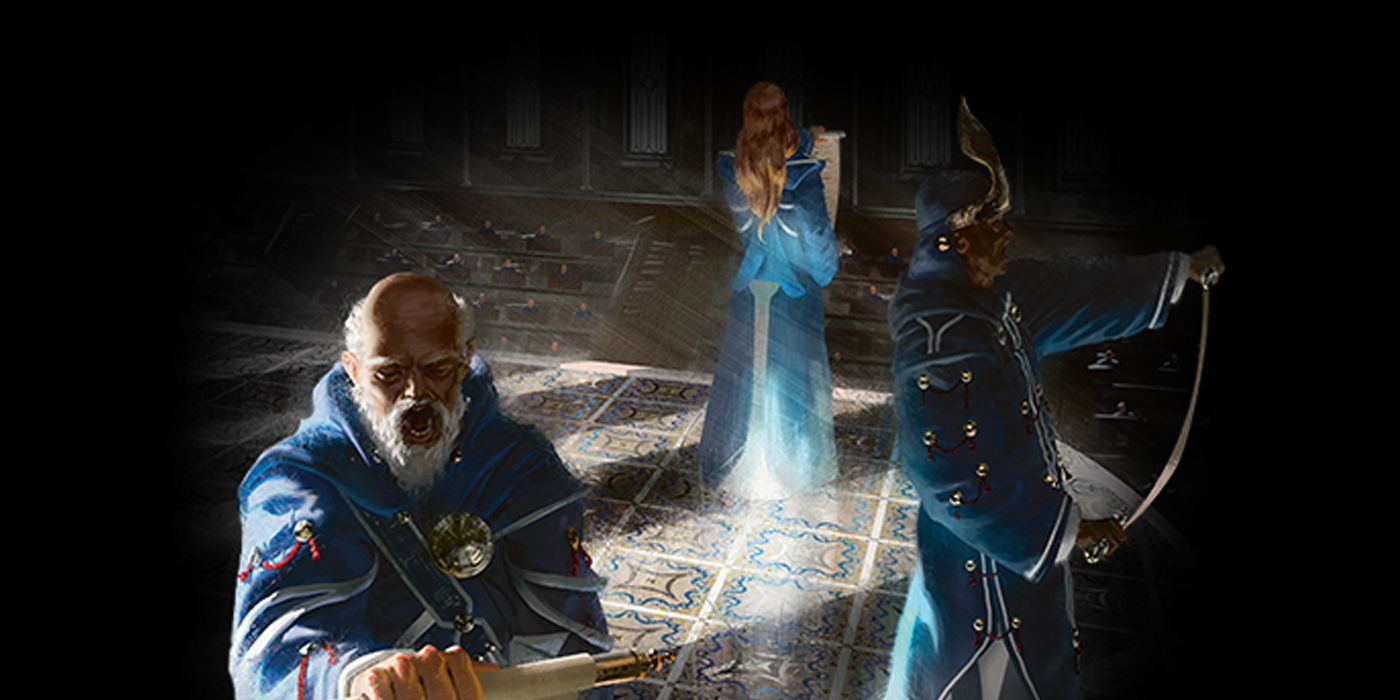
Players who want to create a Wizard that's a sucker for tradition would want to stick to a Wizard School for their Arcane Tradition. This can prove beneficial from both a mechanical and a flavor standpoint:
- More practical combat choices: Compared to other non-"School" Subclasses, other Arcane Traditions aren't as optimal in terms of mechanics. Thanks to a School, a Wizard can get an actual "focus" in terms of the arcane arts. This incentivizes more uses for Spells under that School, due to bonuses unique to them. These bonuses matter especially when boosting their effects, particularly on the damage end.
- Flavor gives access to scholarly spirit: Wizards who are students under a School gain the benefit of scholarly connections in terms of flavor. This can prove invaluable in social campaigns, particularly when dealing with other Wizards. Associations with headmasters, teachers, and other professors can help players tap into more arcane information, useful for research.
- Flavor gives access to better items: Another advantage of a School for a Wizard is their potential access to better items. Their connections with other mentors and higher-level Wizards can incentivize their access to better Magic Items.
Here are other Wizard Subclasses that aren't necessarily a School:
- Bladesinging: This Subclass allows the Wizard to tap into an ancient Elven art of combining swordplay, dance, and magic. With Bladesinging, Wizards gain a means to have a more active role in combat. They can integrate their Spells with the physical aspect of swordsmanship.
- Chronurgy: This Subclass taps into the "time" aspect of the spacetime continuum. As such, Wizards who use Chronurgy can manipulate the pacing of reality to their whims. Their temporal awareness can help them act first, or manipulate the way other creatures perceive time.
- Graviturgy: This Subclass allows the Wizard to manipulate gravity. As such, the Wizard Class can use gravity to have themselves or other creatures move, or even manipulate the trajectory of attacks themselves. Creatively speaking, Graviturgy also lets Wizards manipulate weight and density.
- Order Of Scribes: This Subclass perhaps represents the trend of Wizards being book-lovers. As such, they specialize in maximizing their Spellbook's potential. They can tap into effects that can make studying Spells or casting Spells much more convenient for Wizards, potentially adding to their firepower.
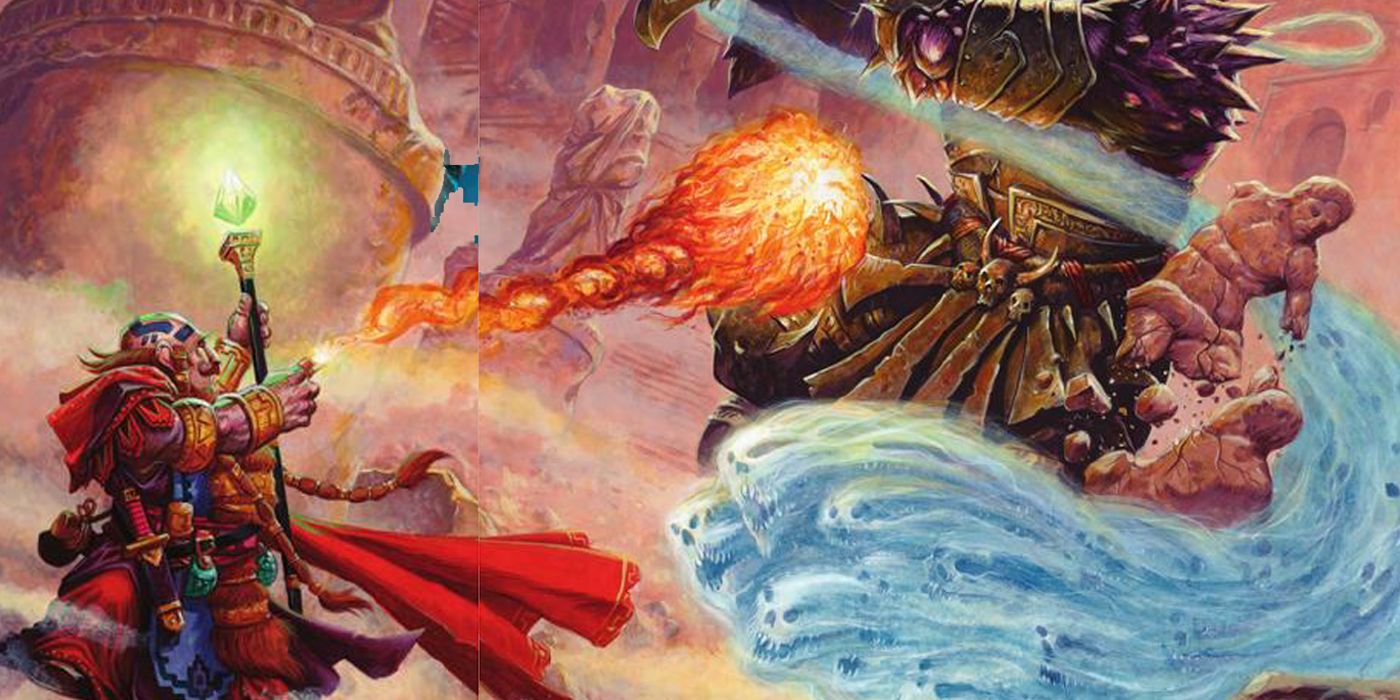
Reality itself becomes a malleable object for Transmuters. With the School of Transmutation Subclass, a Wizard can transform anything they can see. And with the right skill, a Transmuter can alter both the mental qualities and physical forms of things they perceive.
- Advantage: Transmuters have better control over physical objects thanks to the School's Features. With the Transmuter's Stone, a Transmuter can grant themselves a wide variety of benefits.
- Disadvantage: There's not much in the School of Transmutation that a Wizard can't access in other Schools. In that regard, the School isn't as useful compared to others.
Notable Subclass Features:
- Minor Alchemy: For an hour, a Transmuter can "change" copper, iron, silver, stone (not a gemstone) or wood into each other. Despite its appeal flavor-wise, there's not many uses of Minor Alchemy on a broad sense. A Wizard can sell "silver" bars to a merchant and run away with the money before it transforms back into gold, though.
- Transmuter's Stone: This Stone gives its holder a wide variety of benefits. These range from Darkvision, +10ft to Speed, Proficiency in Constitution Saves, and Damage Resistance.
- Shapechanger: This Feature grants Polymorph for free, with its use not expending a Spell Slot. However, using Shapechanger this way only gives the Transmuter access to a CR 1 monster.
- Master Transmuter: At 14th Level, a Transmuter can use their Transmuter's Stone to grant one humongous benefit. They can incur a Major Transformation, remove debuffs from Panacea, cast Raise Dead via Restore Life, and use Restore Youth to reduce one's apparent age (but not lifespan).
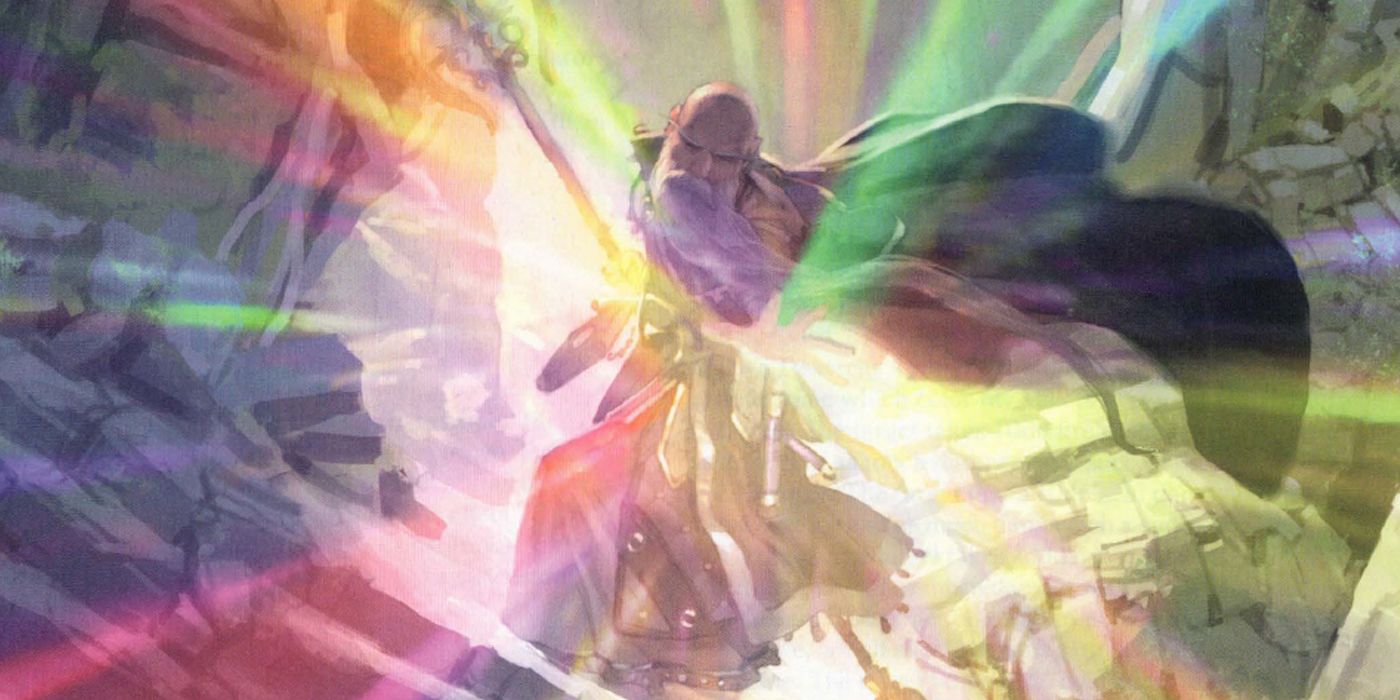
To those in the School of Illusion Subclass, casting illusory images become a daily part of life. With the right Spells, an Illusionist can spare everyone the trouble of getting in conflict entirely.
- Advantage: Creative players can get the most out of illusions thanks to the Features included in this School. Illusionists can make life much easier for the party and more difficult for enemies.
- Disadvantage: Despite its benefits, the School of Illusion won't work well with DMs who aren't as open to the shenanigans illusions can cause.
Notable Subclass Features:
- Improved Minor Illusion: Aside from getting Minor Illusion or another Wizard Cantrip for free, this Feature greatly improves Minor Illusion as a whole. When cast, Minor Illusion now comes with both an image and a sound.
- Illusory Self: Thanks to Illusory Self, an Illusionist can use a Reaction to automatically miss one attack per short or long rest. This Feature can easily become a defensive boost for frail Wizards.
- Illusory Reality: The Illusionist can use Illusory Reality to give their illusions a semblance of tangibility. While this Feature won't make harmful illusions, it can still transform illusions into real objects for an entire minute.
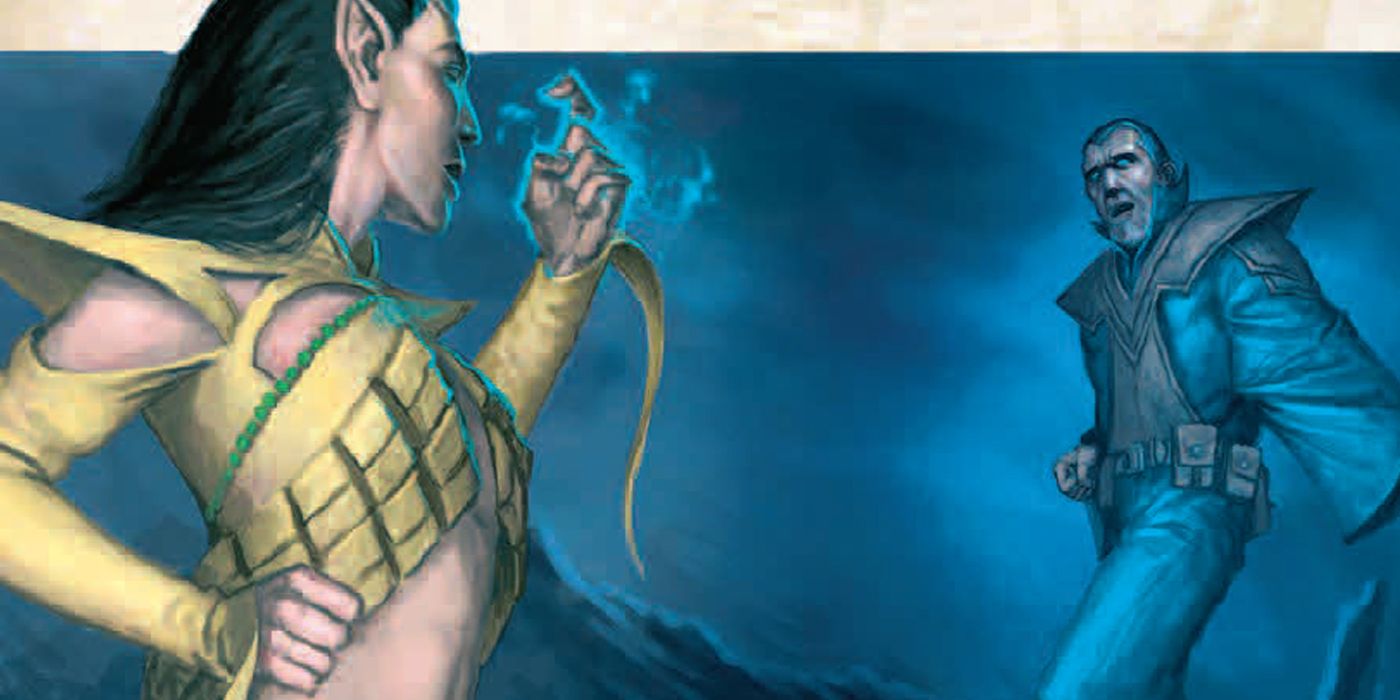
Enchantments ensure there's never going to have a need to face foes directly into conflict. Thanks to the School of Enchantment Subclass, Wizards gain the uncanny ability to charm and beguile creatures around them.
- Advantage: Players who want to dabble into charismatic aspects of their character can capitalize on the School of Enchantment. Thanks to its benefits, Wizards can take on the role of the Face of the party for a short while.
- Disadvantage: Wizards don't get much combat or utility Spells out of the School of Enchantment. Sadly, players who aren't into roleplaying would probably not enjoy this School.
RELATED: Pro Tips For Playing Dungeons & Dragons While Waiting For Baldur's Gate 3
Notable Subclass Features:
- Hypnotic Gaze: In moments of extreme danger, an Enchanter can incapacitate the enemy and move further away from them.
- Instinctive Charm: Albeit usable once per unfriendly, Enchanters will almost always dodge the first ranged attack from opponents they see with this Feature.
- Split Enchantment: Given the single-target nature of most Enchantments, this Feature easily adds firepower to the Enchanter. Moreover, Spells like Power Word Kill and Dominate Monster become quite deadlier with Split Enchantment.
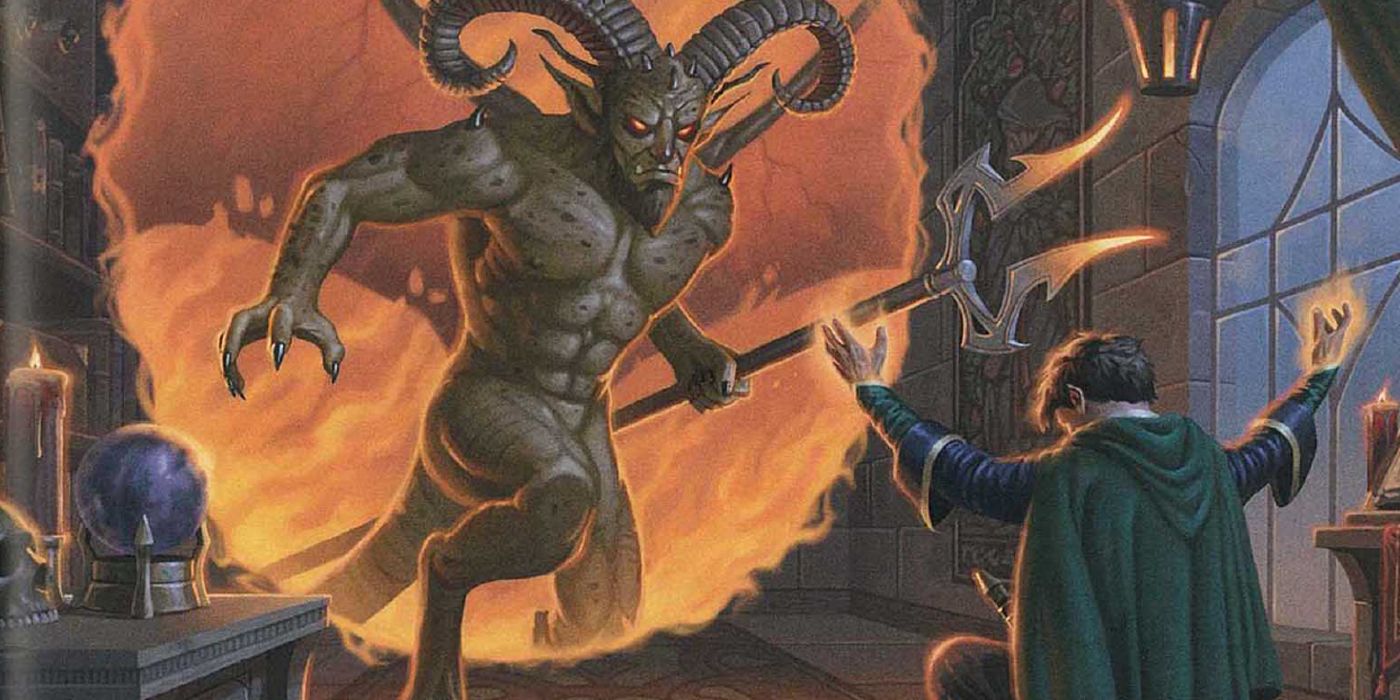
Favored by summoners, the School of Conjuration Subclass allows Wizards to bring into fray a whole host of interdimensional creatures to achieve their objectives. At the hands of a savant, the School of Conjuration can maximize the potency of summoned brethren to give the party that much-needed edge in numbers.
- Advantage: Updates in Tasha also gave players more control with what creatures they can summon. This removes the unattractive unpredictability of summoning that Conjuration originally came with in its original iteration.
- Disadvantage: Players who can get creative with their summons can get a lot out of the School of Conjuration, especially after Level 10. Of course, getting more attractive options only at that point might be unappealing for players.
Notable Subclass Features:
- Minor Conjuration: Easily a creative utility Spell, a Conjurer can tap into various objects in their surroundings to do a myriad of tasks. These include creating traps, scouts, or even cover.
- Benign Transportation: A great mobility Spell, a Conjurer can use this to escape sticky situations. Alternatively, they can change places with a tank if surrounded by foes.
- Focused Conjuration: Conjurers suffer from the need to keep Concentration to maintain their Spells. This Feature removes the caveat of breaking Concentration from damage. This allows Conjurers to keep their stronger creatures summoned in combat.
- Durable Summons: This will always give summoned creatures 30 Temporary HP. This benefit alone makes summoned creatures capable of tanking stronger enemies.
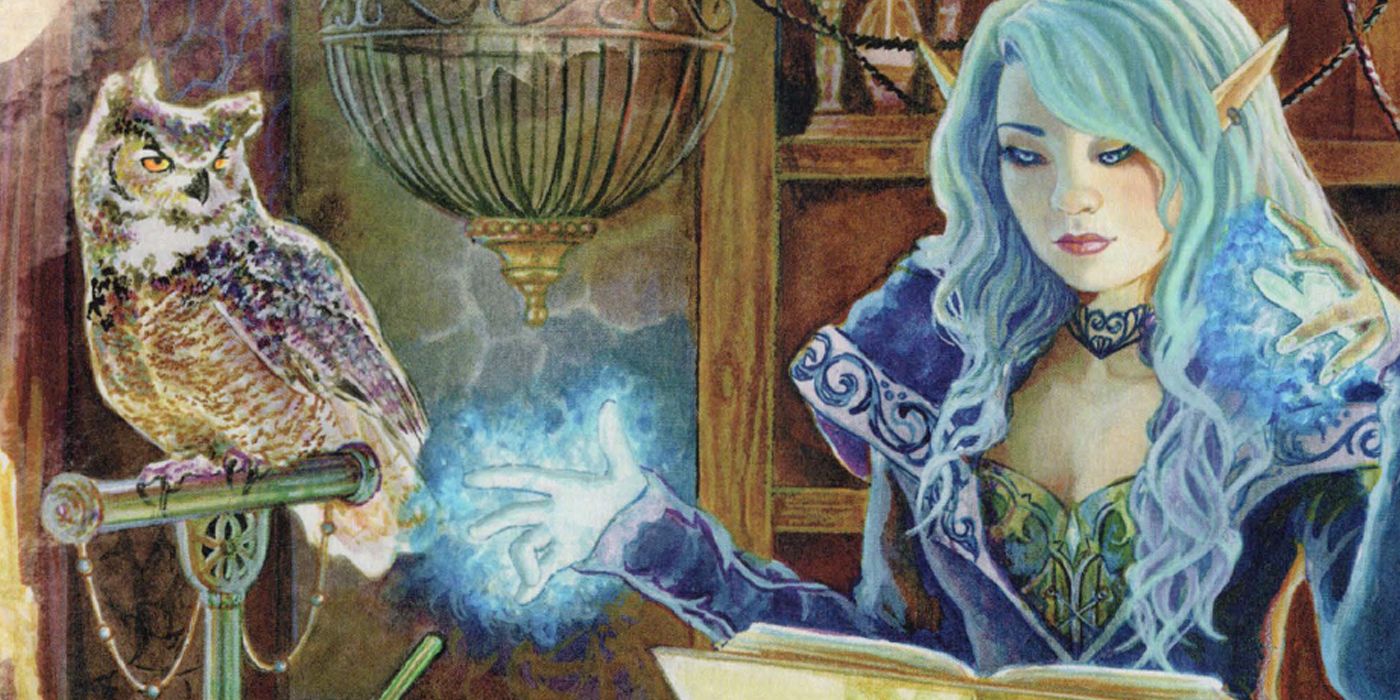
Armed with visions of the future, the School of Divination Subclass gives a Wizard the ability to use foresight to their advantage. A Diviner possesses the capabilities to scour spacetime itself to get their allies information they need.
- Advantage: The School of Divination essentially transforms luck into something tangible for the Diviner. Casters can mitigate risks and solve problems easily with the right combination of Spells.
- Disadvantage: Contrary to other Schools, Divination remains neither flashy nor active in nature. Additionally, Wizards might not immediately appreciate Divination Spells eating their Spell Slots with little visual effect.
Notable Subclass Features:
- Portent: Easily the highlight of the School of Divination. Thanks to Portent, Diviners can roll a set of d20s and use their results to replace any d20-based Check they see before it's cast. This Feature can easily increase the potency of an ally's attack or debilitate an enemy's advance.
- Expert Divination: Essentially, this gives back an expended Spell Slot when using 2nd-Level Spells or higher. This dramatically increases the opportunities to dish out powerful Spells.
- The Third Eye: Diviners get a Perception boost with The Third Eye. This feature gives them access to Darkvision, Ethereal Sight, Greater Comprehension, or See Invisibility. As such, this Feature immediately lets Diviners see-through sneaky opponents.
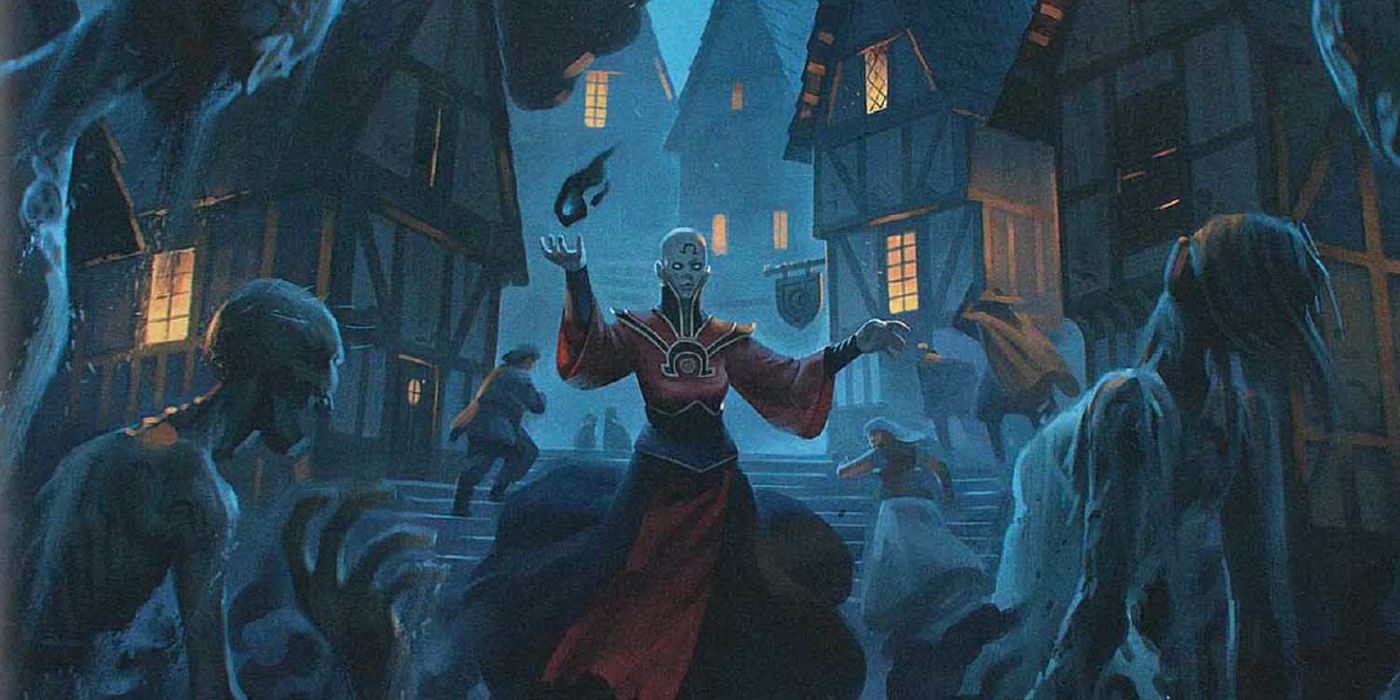
With the School of Necromancy Subclass, lifeforce itself simply becomes a tool one can manipulate. As Necromancers, Wizards tap into the very magics that command life and death itself. As a result, they excel in sapping life from others and commanding undeath itself.
- Advantage: The School of Necromancy fits parties with Wizards who love overrunning foes with pets. The benefits of this School will encouraging the usage of minions.
- Disadvantage: Unfortunately, the School of Necromancy does rely heavily on creating undead minions. It doesn't help that Necromancers need to spend an exorbitant amount of effort to keep their thralls under control.
RELATED: Pro Tips To Create A Cyberpunk D&D Campaign
Notable Subclass Features:
- Grim Harvest: Despite the lack of combative Cantrips for Necromancers, Grim Harvest remains a nifty healing tool. When combined with Vampiric Touch to kill foes, Grim Harvest can heal for much more.
- Undead Thralls: This Feature gives the Necromancer access to the Animate Dead. Moreover, this Feature allows them to cast Animated Dead on one more corpse. As a plus, undead created using the Wizard's Spells gets a boost in HP and Damage Rolls.
- Inured to Undeath: A nifty defense boost, this Feature gives the Necromancer a Resistance to Necrotic Damage. Moreover, their Hit-Point Maximum can't be decreased.
- Command Undead: A Wizard can use this Feature to command undead they can see – even those controlled by other Necromancers.
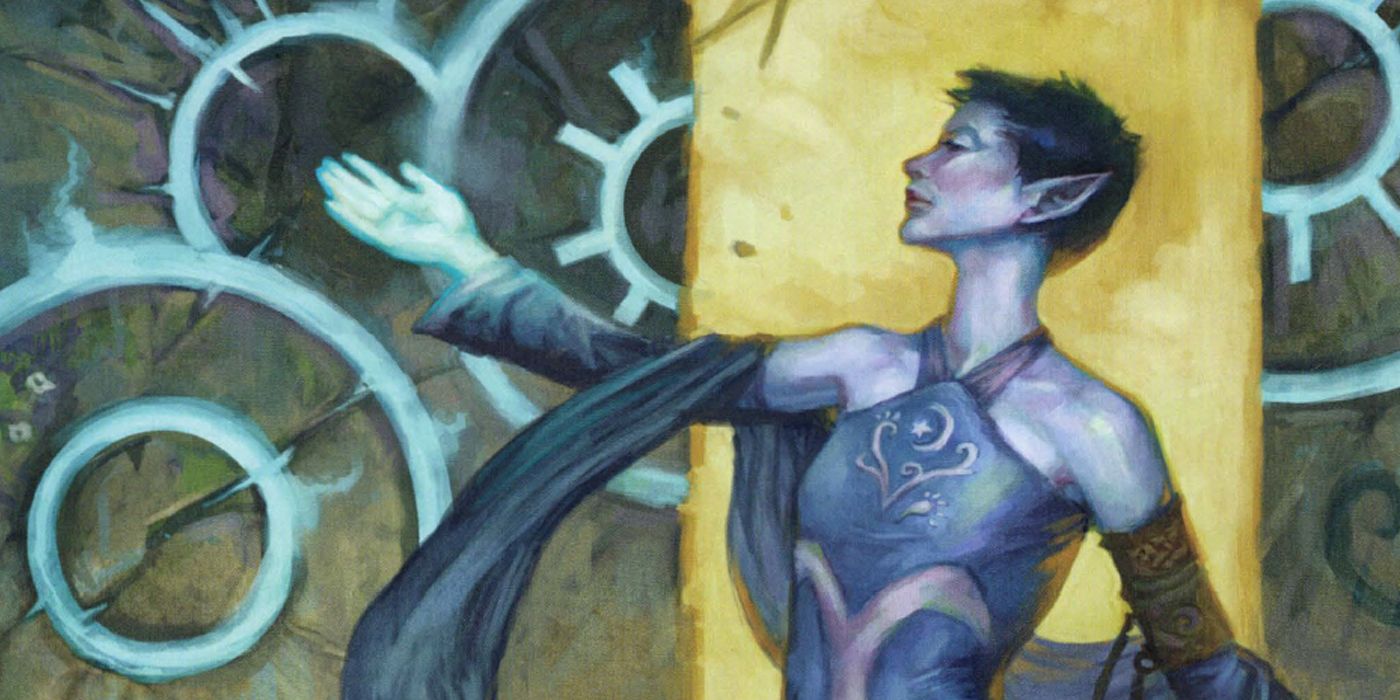
Easily one of the more defensive Schools of Magic, the School of Abjuration Subclass transforms the Wizard into a protective vanguard that solidifies magical defense throughout the entire party. Newcomers to Spellcasters or those who want a more reactive role in combat can feel extremely comfortable with Abjuration.
- Advantage: At its core, the School of Abjuration has Subclass Features that focus on protecting the Wizard. That way, the Abjurer can maximize the offensive potential of the rest of their Spells.
- Disadvantage: Unfortunately for experienced players, the School of Abjuration does tend to become very situational. Unless a fight is bound to happen – particularly against Spellcasters – there's not much room for the Abjurer to showcase their prowess.
Notable Subclass Features:
- Arcane Ward: The bread and butter of the School, the Arcane Ward acts as a secondary layer of defense for the Abjurer. When they cast any Abjuration Spell (not counting Cantrips), they get an Arcane Ward that takes damage first before the caster. Given its nature, the Ward acts as a damage buffer that tanks damage even before Temp HP.
- Projected Ward: This Feature transforms the Arcane Ward into a mobile shield. The Abjurer can spend a Reaction to have the Ward protect another creature – ideally the party's tank.
- Spell Resistance: At 14-th Level, the Abjurer has Advantage on Saves against Spells. This is ideal against more potent Spellcasters on the enemy camp.

Arguably the more offensive amongst all Schools of Magic, the School of Evocation Subclass offers a flamethrower when asked for fire. Thanks to the School of Evocation, Evokers can imbue their Spells with more debilitating effects.
- Advantage: Newcomers to Spellcasting can rely on this School to give them extremely straightforward options. Moreover, its Features transform an Evoker into a reliable offensive Wizard.
- Disadvantage: Players in need of creative room for Spellcasting might not find a lot with Evocation.
Notable Subclass Features:
- Sculpt Spells: Thanks to Sculpt Spells, debilitating area-of-effect Spells become relatively safe for allies. Unlike other Wizards, Evokers can dish out a Fireball with allies in range – with no ally scathed in the process.
- Potent Cantrip: With Potent Cantrip, even an Evoker's rather "average" Cantrips become more damaging – even with averaged DPS.
- Overchannel: With Overchannel, a Wizard can cast a damaging Spell no higher than 5th-Level and deal maximum damage right away. Granted, this Feature does come at a risk of tanking 2d12 damage per Spell Level for any subsequent casts. However, Evokers can dish out more mile for their buck even at the first instance of Overchannel.
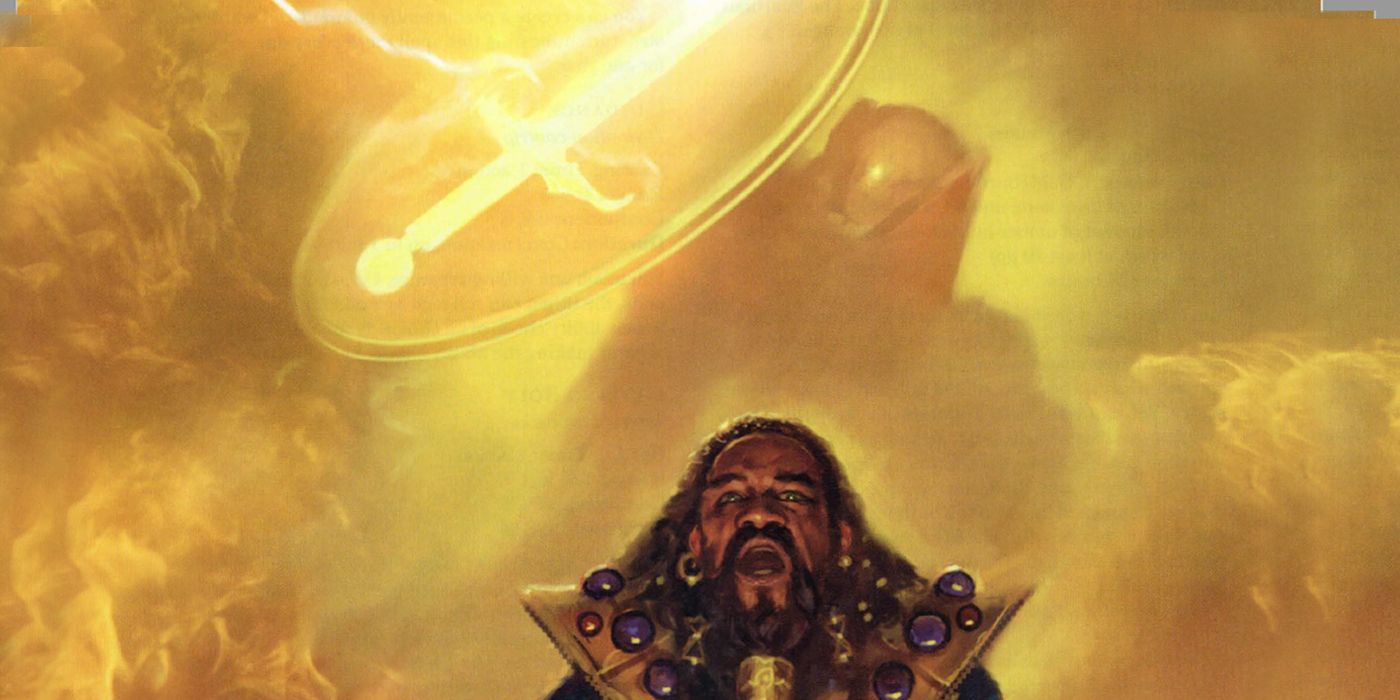
Despite the Wizard's reliance on a Spellbook, this doesn't mean they always stay in the safety of their quarters. When Wizards decide to go to war, they can dedicate their training to protecting their allies and blasting their foes to pieces. As a War Mage, their Spells can provide more tactical advantages in combat.
- Advantages: Despite its flavor, the School of War Magic remains primarily defensive. Given this nature, War Magic does overlap a lot with Abjuration Spells. However, unlike Abjuration's ally-focused nature, War Magic focuses more on defending the War Mage itself.
- Disadvantages: Sadly, the defensive capabilities of War Magic may prove fatal to the naturally-frail mage. Players need to exert more effort to boost the survivability of their War Mage. After all, they might take a few hits in melee, but they still lack the AC to withstand stronger attacks.
Notable Subclass Features:
- Arcane Deflection: Thanks to Arcane Deflection, a War Mage can also get +4 to Saves. Granted, Shield can provide them with more AC. However, the bonuses to Saves can prove invaluable when fighting other Wizards.
- Tactical Wit: With Tactical Wit, a War Mage can get Initiative bonuses. This can prove advantageous in combat, as a War Mage can setup defenses for themselves before getting into the fight.
- Durable Magic: Thanks to Durable Magic, a War Mage can get more incentives to Concentrate on Spells. The bonus it provides to maintain Concentration can allow a War Mage to dish out more tactical Spells.
NEXT: Tabletop RPGs That Dungeons & Dragons Fans Should Try


